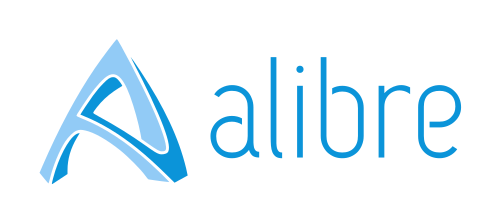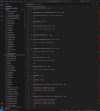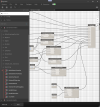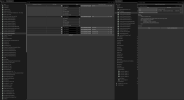When Alibre was first introduced it had the capability for collaborative design with remote users. Also had online support and a pane on the Home window so you could see who was online. I think slow internet connections put all that to an end. It would be cool if that could be reinstated.
Wonder if Alibre LLC has ownership of that patent?

All "big bad cad boys" seems to forget who was the innovator in this field...
"
Alibre Issued Patent for 3D Solid Modeling on the Internet
Multi-tiered, Distributed Processing Architecture Facilitates CAD Collaboration
RICHARDSON, Texas, December 6, 2004 - Alibre Inc. today announced it has been issued a patent for an invention enabling 3D solid modeling for mechanical design and engineering in high-bandwidth, distributed processing networks such as the Internet.
The invention is embodied in the currently shipping Alibre Design 3D CAD product and consists of three components: the design application, the design server and the repository server. The multi-tiered architecture separates the CAD application's user interface from its core modeling engine, or design server, and data storage, facilitating the computing of intensive 3D CAD tasks on a series of servers.
In a common configuration the design application is installed on each user's PC, just like other traditional desktop applications, but that is where the similarity stops. One or more instances of the architecture's design and repository servers can then reside on the same computer or be distributed among multiple computers, depending on the computing task's complexity and available resources. This enables processing tasks to be directed to the computers best suited for them, providing increased options for corporate infrastructure investment by allowing outsourcing of the various components.
"Alibre has been an innovator in Internet-centric CAD and data sharing since the company was founded and this patent is an exciting milestone for us," said Greg Milliken, CEO of Alibre. "Our vision of pervasive, easy to use design tools that enable spontaneous collaboration is gaining momentum, and it's clearly just the beginning. Alibre Design's architecture is extremely flexible and scalable, and with widespread access to high-bandwidth, the Internet offers a virtually unlimited distributing processing environment that will deliver unprecedented growth in computing power and productivity."
This patented technology enables Alibre Design to offer the most powerful and flexible collaboration tools of any CAD application. In addition to allowing designers and engineers to share and edit product designs in real-time over the Internet, it also provides the foundation for Alibre's unique collaborative support service, the Alibre Assistant, that delivers live technical guidance from Alibre support engineers to all Alibre Design customers.
Alibre develops and markets Alibre Design, a parametric 3D solid modeler for mechanical design and manufacturing. One-fifth the cost of comparable software, Alibre Design delivers ease-of-use, rich functionality, extensive tutorials and unique real-time support via the Alibre Assistant. Customers may also share and edit product designs in real time with integrated online tools. Alibre Design is available in seven languages and distributed around the world. Founded in 1997, Alibre Inc. is privately funded and based in Richardson, Texas. For more information, visit
www.alibre.com.
"



